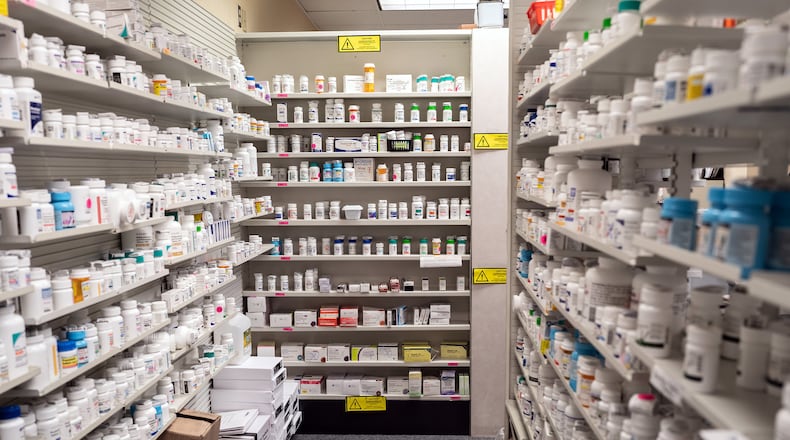A change in Medicare law means drug companies will have to negotiate prices for certain drugs starting in 2026.
“The cost of prescription drugs has been a concern for people with Medicare and patients overall in the United States for many years,” said Juliette Cubanski, deputy director of the Kaiser Family Foundation’s Program on Medicare Policy. “Particularly for people with Medicare, many of them are relatively sick, they take a lot of prescription drugs to treat different chronic conditions, and the burden of high health care costs, particularly high prescription drug costs, can fall very heavily on people with Medicare.”
One example is Humira, which can be used to treat rheumatoid arthritis or Crohn’s disease. The average retail price of Humira is approximately $9,000 for a dosage of two pens of 40mg, with the lowest costs around $6,000, according to GoodRx. For the year per person, that cost would be a range of between $72,000 and $108,000.
“Brand-name drug prices have grown faster than general inflation for more than a decade, meaning a growing number of patients have had to go without necessary medications,” said Holly Holtzen, AARP state director in Ohio.
The National Council on Aging analyzed the yearly costs older adults with chronic illnesses face, combining both the cost of treatment and the cost of lost wages when they can no longer work due to poor health. The costliest include: $48,701 per person for Alzheimer’s and/or dementia; $30,028 for cancer; and $20,137 for diabetes.
When patients can’t afford their medications, it can put them in the position of potentially having to skip doses, cut back on medication, or go without their medication.
“We do know that from our research, over 1 million Medicare beneficiaries have paid more than $2,000 out of pocket for prescription drugs (for a one-year estimate for 2020),” Cubanski said. “While that might not sound like a lot of money, most Medicare beneficiaries live on relatively low incomes, and so when prescription drugs are expensive, that can pose real affordability challenges.”
That is happening similarly in this region, with pharmacists like Dr. Justin Coby, a pharmacist and the director of pharmacy at Cedar Care Village Pharmacy, seeing patients pay several hundred dollars for medications as they are working through a deductible at the beginning of the year.
“I understand that folks who are on Medicare are really frustrated by that and it costs them so much money that they have to make decisions on whether to get their medications or to eat or pursue further medical care,” Coby said. “I know this is something that needed to be addressed and needs to be there for folks on Medicare who can’t afford their medications, but there will be some fallout in other areas because of that.”
About the Author

